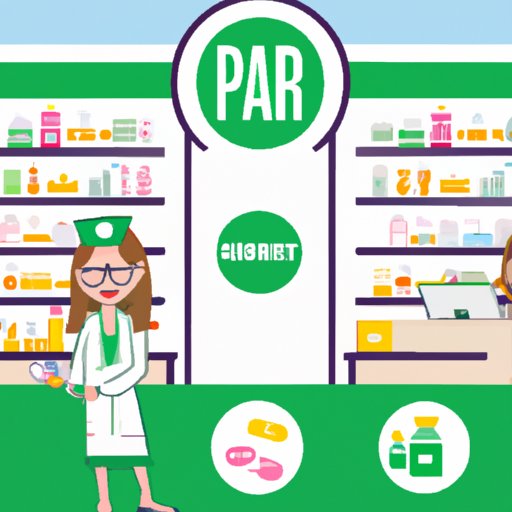Introduction
A pharmacist is an important part of the healthcare team, responsible for helping patients understand how to safely take their medications and providing advice on potential side effects. Becoming a pharmacist requires a combination of education and licensing, as well as the development of specific skills. Keep reading to learn more about the steps needed to become a pharmacist and the tips for building professional relationships with patients.
Education and Licensing Requirements
In order to become a pharmacist, you must first complete an undergraduate degree in pharmacy. This typically involves taking courses such as biochemistry, pharmacology, medical ethics, and drug compounding. You may also need to complete an internship or residency program in order to gain hands-on experience. After completing your degree, you will need to obtain a license from your state’s board of pharmacy. This process typically involves passing a national exam and demonstrating that you meet your state’s requirements for licensure.

Role and Responsibilities of a Pharmacist
The primary role of a pharmacist is to dispense prescriptions and provide advice on how to take them safely. Pharmacists also advise patients on potential side effects and drug interactions, as well as provide information on over-the-counter medications. In addition, many pharmacists are involved in compounding medications, which involves creating customized doses or forms of medications for specific patients.

Different Types of Pharmacy Careers
Pharmacists can choose from a range of different career paths. Community pharmacists work in retail pharmacies and are responsible for dispensing prescriptions, advising patients, and providing other services. Hospital pharmacists specialize in providing medications to patients in hospitals or other healthcare facilities. Clinical pharmacists specialize in treating complex medical conditions and often work alongside physicians. Finally, pharmaceutical researchers develop new medications and conduct clinical trials.

Skills Needed to Be Successful
In order to be successful as a pharmacist, you must possess certain skills. Communication is key, as you must be able to clearly explain instructions to patients and answer any questions they may have. Attention to detail is essential, as you must be able to accurately read and interpret prescriptions. Problem-solving is also important, as you must be able to troubleshoot any issues that arise. According to a recent survey by the American Association of Colleges of Pharmacy, “the ability to think critically, solve problems, and communicate effectively [are] essential skills for success in the profession.”
Latest Technology Used in Pharmacy Practice
Technology has revolutionized the practice of pharmacy. Automated dispensing systems store and dispense medication quickly and accurately. Electronic health records allow pharmacists to easily access patient information and track prescription histories. Prescription monitoring programs allow pharmacists to identify potential drug misuse and alert authorities if necessary. These technologies help ensure that patients receive safe and effective medications.
Tips for Building Professional Relationships with Patients
Building strong professional relationships with patients is essential for pharmacists. When interacting with patients, it is important to listen carefully and respond appropriately. Showing respect and empathy can go a long way in building trust. It is also important to provide accurate information and explain any potential side effects or drug interactions. According to the American Pharmacists Association, “building trust with patients is at the core of providing quality care.”
Conclusion
Becoming a pharmacist requires a commitment to education and licensing, as well as the development of specific skills. Pharmacists play an important role in the healthcare system, responsible for dispensing medications, providing advice, and building relationships with patients. The latest technology is also being utilized in pharmacy practice, helping to ensure safe and effective medications for all patients. If you are interested in becoming a pharmacist, there are a number of steps you must take, but the rewards can be great.
(Note: Is this article not meeting your expectations? Do you have knowledge or insights to share? Unlock new opportunities and expand your reach by joining our authors team. Click Registration to join us and share your expertise with our readers.)
